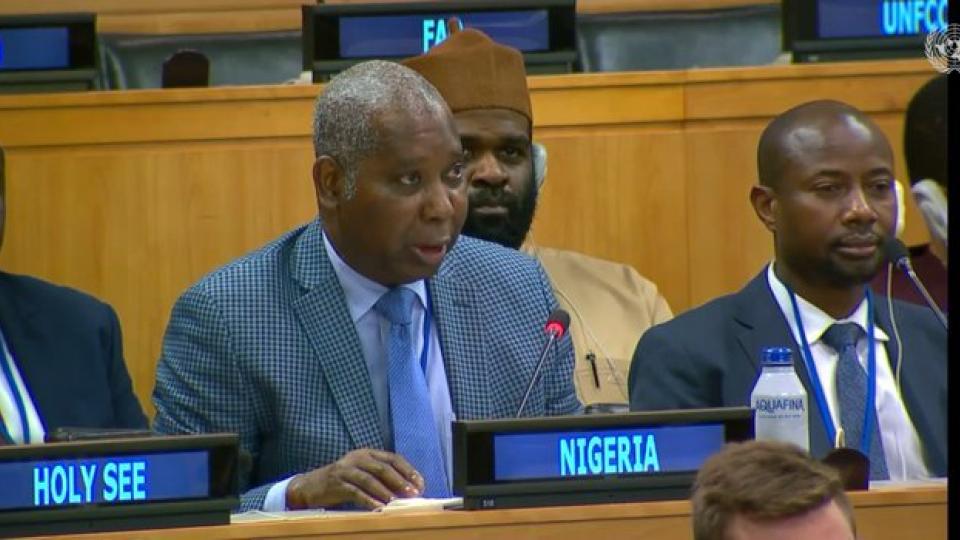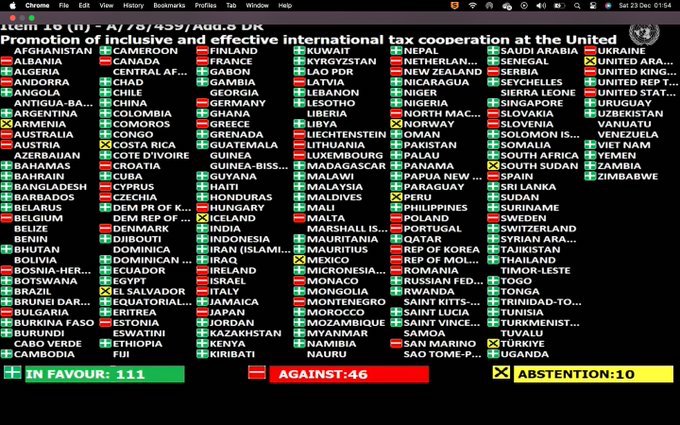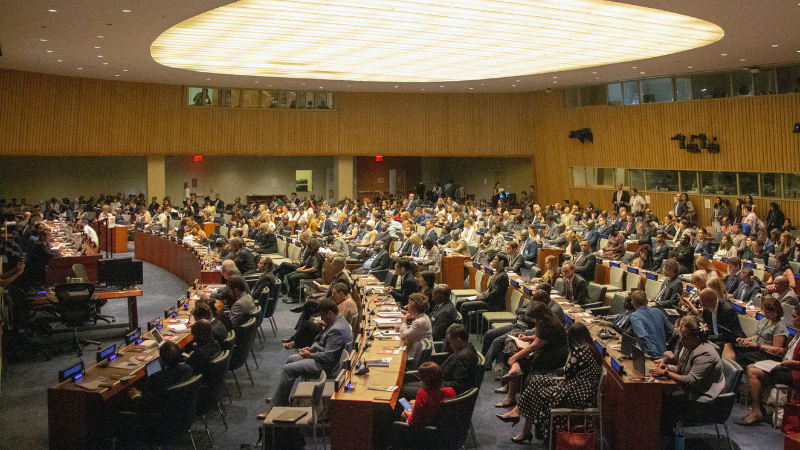
A global effort to strengthen the international tax process to make it more fully inclusive and more effective is garnering worldwide support. The OECD? No. Many advocates of this tax reform project are less than impressed by the OECD’s accomplishments to date, with some mocking its “low” 15% global minimum. It is happening at the United Nations, and votes from supportive countries, including certain tax havens and the Russian Federation, have given it a certain momentum.
The main idea, according to Luxembourg member of parliament David Wagner of the Left party, is to “transfer the development of international tax rules under the United Nations’s authority,” he explained in a parliamentary question.
The process intends to make it easier for governments to “better cooperate in generating financing for development, including and through combating illicit financial flows, recovering and returning stolen assets, promoting financial integrity for sustainable development and improving public institutions,” according to the Nigerian draft resolution published 15 November 2023.
Formal adoption
This resolution was voted by the United Nations General Assembly’s second commission on 22 November 2023, and then formally adopted in a plenary session of the General Assembly on 22 December 2023.
“The vote reflected the growing frustration of a large number of countries with the dominant role played by the OECD in setting out the rules governing international tax,” wrote Wagner. “The main reproach is that that entity, made up mainly of rich countries, fails to take sufficient account of the needs, interests and capacities of developing countries.”
Reform advocates have pointed out that most wealthy countries, including EU member states, are losing a lot of income to tax avoidance using global tax havens.
Europe's silence
“EU countries have also been almost silent, despite being among the largest losers from cross-border tax abuse and often presenting itself as a driver of change.,” said the Tax Justice Network.
The resolution created a special intergovernmental committee to undertake intergovernmental negotiations
“The main impetus of the resolution is first and foremost procedural,” explained Prof. Werner Haslehner, a University of Luxembourg law professor who holds the ATOZ Chair for European and International Tax Law. He added that it seeks to ensure “a real voice to all countries, many of whom have felt effectively forced into a system shaped by the OECD and some of its members.”
UK amendment defeated
Haslehner found it significant that a UK-proposed amendment before the General Assembly vote that would have downgraded the eventual convention from “framework convention” to merely a “framework” was strongly defeated
The process has been openly opposed by most OECD members, notably the United States, Britain, and most EU countries including Luxembourg. However, somewhat remarkably, Switzerland voted in favour, while Norway and Iceland merely abstained.
“The positions of the European Union member states were conceived through taking account the need to not duplicate the work underway in other forums on international tax cooperation, notably with the Organisation for Economic Cooperation and Development,” said finance minister Gilles Roth in a response to David Wagner’s parliamentary question.
OECD work noted
The OECD represents a group of 38 mostly rich countries and has been trying to foster inclusiveness. While noting the work of “other relevant forums”, with its emphasis on combating tax evasion and corruption, the United Nations is motivated to go further than the OECD.
Professor Haslehner points out that the UN cannot bring a binding convention into being through voting – only countries which sign up would be bound by it.
However, he added, “what can be achieved is to have an alternative model of rules for countries who do not (or no longer) want to go along with the path taken by the G20/Inclusive Framework, with the OECD in the driver’s seat.”
Bullying power reduced
“In essence, the bullying power of the latter would be reduced if countries could point to alternative rules on taxing international investment flows.” Haslehner pointed out that “such countries could not be penalised for not implementing the OECD rules.”
Bart van Droogenbroek, tax leader at EY Luxembourg, sees the UN move in the context of developing countries being dissatisfied with the OECD’s Pillar Two directive, which aims to implement a country-by-country minimum tax rate of 15%.
“Pillar Two is a very complicated tax to administer for countries,” he explained. “You need to put in place a very expensive collecting and reporting mechanism and so on.” He added that the measure makes it “very complicated” to use tax as “an attraction mechanism for new investors”.
Also raising tax revenue
Van Droogenbroek acknowledged that countries supporting the UN process are also interested in raising the amount of tax they can collect.
“So the developing countries push through the United Nations a way for them to protest against the OECD countries and the EU imposing their view on how fair tax would work,” he added,
Van Droogenbroek said that significant obstacles stand in the way of a UN framework.
“The OECD was so successful because they managed to have almost all global tax treaties changed in a way to fit the inclusiveness framework, according to their view,” he said. “I doubt that the United Nations will be able to organise a similar success and adapt the treaties that were already changed once again, in order to take into account the wishes of the United Nations inclusiveness framework.”
How the UN General Assembly vote broke down by country

Scene at the UN General Assembly for the first vote




